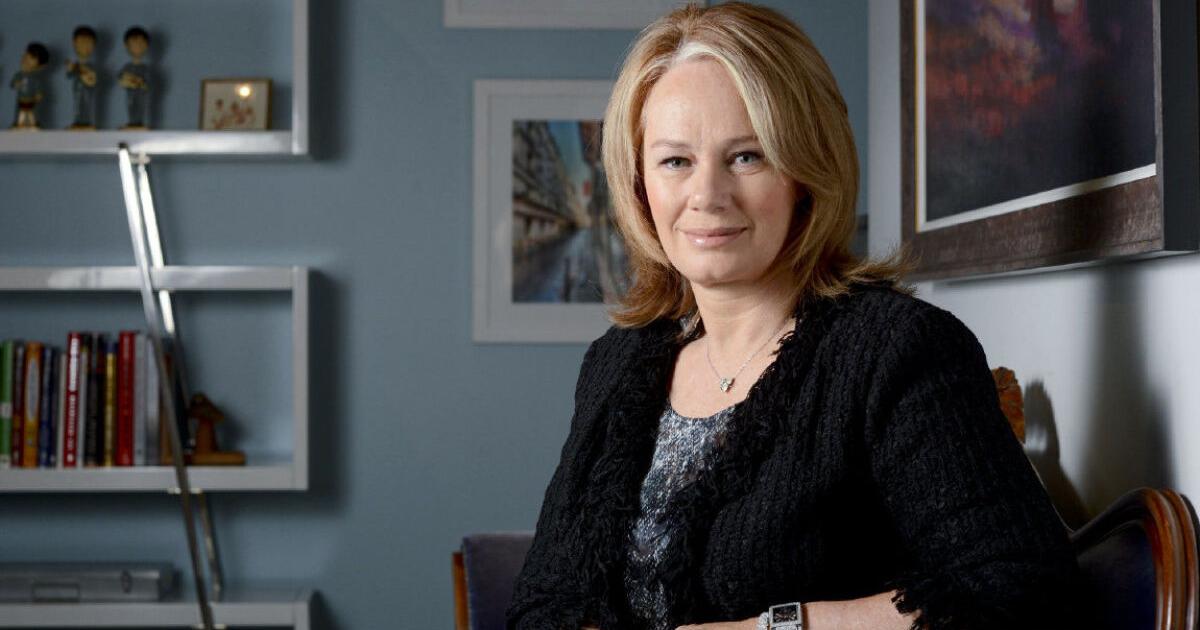Celebrity entrepreneur and Dragons’ Den star Arlene Dickinson is being sued for $17.5 million.
The suit was filed earlier this year by former shareholders and employees of Argyle Communications, a Toronto-based public relations company which was one of four firms which merged with Dickinson’s Venture Communications in 2022 to create a communications “super-firm.”
The $17.5 million claim includes $15 million for misrepresentation and unjust enrichment, and $2.5 million in punitive damages. None of the allegations have been proven in court.
In a written statement, Dickinson’s lawyer blasted the lawsuit, calling it “nonsense,” and said her legal team is seeking to have the suit tossed out of court.
“An aspect of being a highly successful public figure is that they face nonsense such as this. Arlene will have none of it. These allegations are plainly false and have no basis in fact,” said Jeremy Devereux, a partner at Norton Rose Fulbright. “Our courts are not the place to pursue petty PR tactics by attempting to diminish Arlene’s sterling reputation. We are bringing a motion in the court for an order to dismiss these allegations.”
In a statement posted to her social media accounts Monday afternoon, Dickinson also denied the allegations, calling them “baseless.”
“I understand that being a public figure makes me a target. That comes with the territory. But it’s still disappointing that people do this,” Dickinson wrote in her post. “I want to call this out for what it really is, which is a shameless PR tactic, from a well resourced PR firm, poorly dressed up as a lawsuit. It’s a manipulation tactic designed to pressure, distract, or harm my reputation.”
The suit accuses Dickinson of overstating Venture’s financial health in the lead-up to the takeover of Argyle, then running the merged company — known as BelieveCo. — so badly that cash infusions from a private equity company were required.
According to the suit, those cash calls caused the value of the Argyle investors’ stake in BelieveCo. Partners (BCP) to drop from 20 per cent to just 3 per cent, with the merged company losing more than 95 per cent of its original value. (BelieveCo. changed its name to Changemakers in October.)
“Ms. Dickinson’s conduct is egregious, high handed, and deserves condemnation by this Court,” the suit argues.
The suit also accuses Dickinson of misusing company funds, including selling her personal furniture to BelieveCo. for $175,000, which was later valued at just $20,000.
“As ‘payment’ for this furniture, Ms. Dickinson directed BCP to pay her $165,000 personal credit card debt incurred for a luxury vacation, including the purchase of Chanel bags and watches,” said a statement of claim filed by the Argyle shareholders and employees on May 13.
The suit also says that after convincing Argyle shareholders of the wisdom of the deal, Dickinson also convinced several Argyle employees to invest in the combined company.
“The Argyle Employees each invested between $50,000 and $65,000 into BCP. To make these investments, the Argyle Employees dipped into savings, spent inheritance money, and mortgaged their homes,” the suit says. “Although the Argyle Employees did not know it at the time, the Employee Representations were false. Ms. Dickinson made them intentionally, for the purpose of inducing the Argyle Employees to invest in BCP.”
According to the suit, Dickinson also withheld vital information from the former Argyle employees and shareholders, and made “inappropriate and/or excessive” payments to lawyers and staff, including having a family member on BelieveCo.‘s payroll “whose role was principally promoting Ms. Dickinson’s personal brand.”
Argyle’s shareholders turned down a competing bid for the firm from a U.S. company, according to the suit.
Lawyers representing Dickinson filed a “Notice of Intent to Defend” with the Ontario Superior Court on Jun. 10. A statement of defence hasn’t been filed with the court yet.
Last August, BelieveCo. sued Dickinson after she resigned as interim CEO of the company. That suit also accused Dickinson of overstating Venture’s finances, and argued that caused BelieveCo. to overpay for Venture.
Dickinson countersued, saying the allegations were designed to sideline her from BelieveCo., as part of an attempt to give private equity firm Canadian Business Growth Fund control of the company. She also denied Venture’s finances were misrepresented.
”BCP’s late-breaking claims are a pretext to defeat … legitimate employment and shareholder entitlements … and as part of a broader strategy to allow CBGF to assume control over BCP,” Dickson’s counterclaim said.
In her counterclaim, Dickinson said she “provided transparent information to BCP’s board regarding Venture’s business, and both CBGF and BCP had the opportunity to conduct their own due diligence.”



